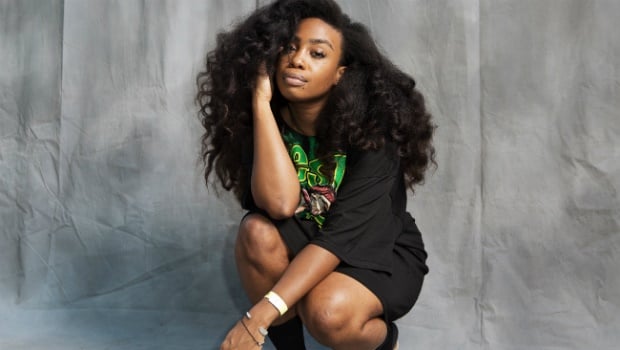
LVMH-owned international mega beauty chain Sephora - which also houses Fenty Beauty by Rihanna - will close all its U.S. stores, distribution centers and corporate offices today for diversity training for all employees.
This comes after Grammy-nominated singer SZA - who previously worked in the store's skincare department before her music career took off - tweeted about an incident of racial profiling at the Calabasas Sephora store a little over a month ago.
Lmao Sandy Sephora location 614 Calabasas called security to make sure I wasn’t stealing . We had a long talk. U have a blessed day Sandy
— SZA (@sza) May 1, 2019
A tweet to which the Sephora Twitter account responded to, reassuring the 'Go Gina' singer that they would address the matter:
Hi, SZA. We’re sorry to hear about your experience at our Calabasas store and appreciate you bringing this to our attention. We want to let you know we take complaints like this very seriously and are actively working with our teams to address the situation immediately.
— Sephora (@Sephora) May 1, 2019
According to The Guardian, Sephora's spokeswoman Emily Shapiro told Reuters in an email that they "take complaints like this very seriously, profiling on the basis of race is not tolerated at Sephora".
READ MORE: Gucci is finally doing something about the big problem they have with racism
The spokeswoman reportedly further expressed how today's diversity training "had been in progress for several months and that a broader campaign called 'We Belong to Something Beautiful' had been in the works for at least a year".
However, this wouldn't be the first time a major brand came under fire publicly for racial profiling - a year ago, Starbucks also closed shop for "unconscious bias training" after two black men were arrested while waiting for a friend inside the popular coffee spot.
It was just the other day when a 23-year-old woman was arrested in Sea Point, Cape Town for taking selfies while waiting for her job interview.
And earlier this year, a Moschino store in West Hollywood was sued for referring to their black staff and clients as 'Serena'... well at least those who don't look "well-off enough" to afford the luxury Italian label.
Complex reports that Shamael Lataillade - a black Haitian-American woman - told TMZ how her employers "would call them a ‘Serena’ and instructed other employees to follow and watch [black clients] closely, sometimes even writing down their license plates”.
As a result, this former employee of the store finally mustered the courage to file a lawsuit against Moschino for racial discrimination not only against clients, but against her personally too. According to TMZ, Shamael was "discriminated against and mocked as someone who practices voodoo" by her supervisor. She was subsequently fired for sounding the alarm on racism in the store as well as the Serena slur.
READ MORE: How racism, and the refusal to acknowledge it, destroyed my dream to work in Thailand
The sad reality is that this is not just a Starbucks, Moschino or a Sephora problem - it's a retail problem - and black fashion consumers bear the burden of racial profiling whenever they decide to colour outside the lines of what is deemed appropriate for their assumed tax bracket.
This is an example of how the black customer's access to luxury and the like is only theoretical, despite South Africa's emerging black middle class.
Of course, this growing black middle class is hardly an achievement to shout on suburban rooftops about - it's simply worth the acknowledgement that black people who can afford to do more than merely survive are no longer an anomaly and should therefore not be treated as such.
However, whenever we enter a clothing boutique or high-end store, we immediately become suspects of criminal activity. A shop assistant is prompted to meander between the rails a few steps behind us as we browse, adjusting hangers we've touched almost as if to confirm that the items are still really there.
READ MORE: Is Cape Town more racist than other parts of SA? Our users respond
Ask any black shopper, they'll tell you they've been a 'Serena'. Ask any black retail staff member too - they're racially profiled from all angles.
I can think of many a high-end boutiques where the black store assistants' role is to tend to black customers, while white staff hobnob with their 'real' customers.
I remember one time in particular when I bought a pair of shoes at a popular boutique and at the counter, the owner left the box and paper bag for me to pack it myself as soon as my payment was approved.
Are we only good enough for our money, but not decent service?
This was an example of one of the not-so-subtle ways in which racial stereotypes are enforced while shopping. It also plays out on the other end of the spectrum, where we enter a store and are offered no assistance, while a white customer who enters minutes after you, is given five-star treatment.
Two black fashion enthusiasts I spoke to can also attest to the phenomenon of racial profiling at clothing stores:
Incidents such as the above go beyond boutiques - restaurants and holiday accommodation are quite notorious for restricting access to black people.
The only difference is that while places of dining and slumbering are able to deny you over the phone, retail stores' implicit limited access can mostly only be implemented once you've popped by.
*Names have been changed.
What's your experience of being a 'Serena'? And has it discouraged you from shopping at places you actually like? Tell us here.
Sign up to W24’s newsletters so you don't miss out on any of our hot stories and giveaways.




 Publications
Publications
 Partners
Partners










